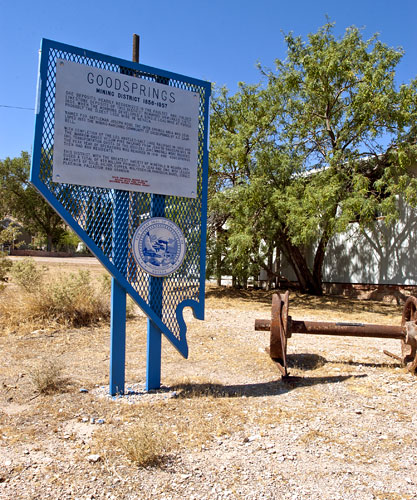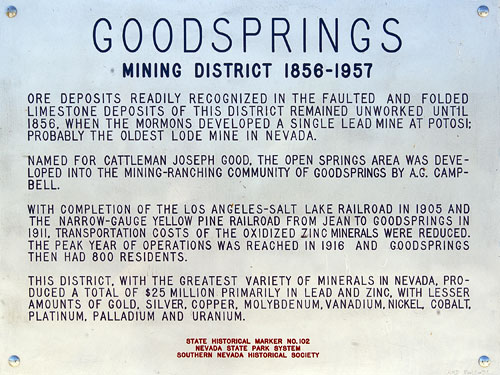Nevada Historic Markers in Clark County: Goodsprings
Nevada Historical Marker 102
Goodsprings
West Spring Street at South Revere Street
Goodsprings


21 June 2006
(Click Photo to Zoom)
Mining District 1856-1957
Ore deposits readily recognized in the faulted and folded limestone deposits of this district remained unworked until 1856, when the Mormons developed a single lead mine at Potosi; probably the oldest lode mine in Nevada.
Named for cattleman Joseph Good, the open springs area was developed into the mining-ranching community of Goodsprings by A.G. Campbell.
With completion of the Los Angeles-Salt Lake Railroad in 1905 and the narrow-gauge Yellow Pine Railroad from Jean to Goodsprings in 1911, transportation costs of the oxidized zinc minerals were reduced. The peak year of operations was reached in 1916, and Goodsprings then had 800 residents.
This district, with the greatest variety of valuable minerals in Nevada, produced a total of $25 million primarily in lead and zinc, with lesser amounts of gold, silver, copper, molybdenum, vanadium, nickel, cobalt, platinum, palladium and uranium.
State Historical Marker No. 102
Nevada State Park System
Southern Nevada Historical Society